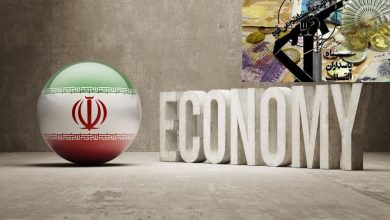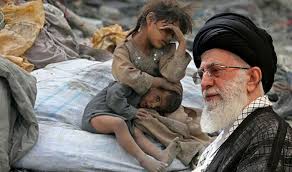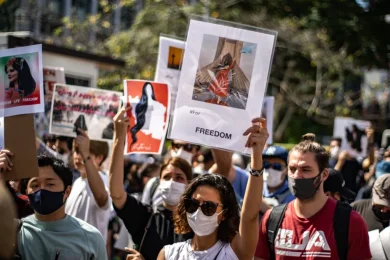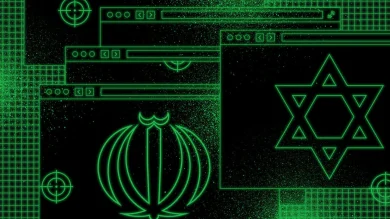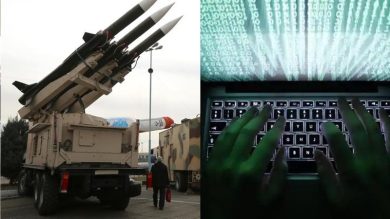The Islamic Revolutionary Guard Corps (IRGC) has long been a dominant force in Iran’s regional strategy, using proxy wars to project its influence and destabilize the Middle East. Established in 1979 to safeguard the Islamic Republic and its revolutionary ideals, the IRGC has evolved into a multifaceted organization that extends its power through military, political, and economic means. Among its most effective tools is the use of proxy groups, which the IRGC funds, trains, and arms to undermine adversaries, expand its reach, and reshape the region’s political landscape.
This report delves into the IRGC’s role in proxy wars, focusing on its key allies and operations in countries like Lebanon, Syria, Iraq, and Yemen. It examines the impact of these activities on regional stability and global security.
1. The IRGC’s Strategy of Proxy Warfare
A. The Rationale Behind Proxy Wars
• Proxy warfare allows the IRGC to project power without direct confrontation, minimizing risks to its forces and avoiding outright war.
• Through proxies, the IRGC advances its ideological, political, and security interests, particularly the exportation of Iran’s revolutionary ideals.
B. The Quds Force: IRGC’s Arm for Proxy Operations
• The Quds Force is the IRGC’s elite unit responsible for external operations, tasked with managing and supporting proxy groups across the Middle East.
• Under the late General Qassem Soleimani, the Quds Force became a key driver of Iran’s regional agenda.
2. Key Proxies Supported by the IRGC
A. Hezbollah in Lebanon
• Role: Hezbollah serves as Iran’s most powerful and reliable proxy, acting as a military and political force in Lebanon.
• Support: The IRGC provides Hezbollah with funding, weapons, and training, enabling the group to maintain a vast arsenal and military capabilities.
• Impact: Hezbollah destabilizes Lebanon by undermining its sovereignty, challenging Israel, and fueling regional tensions through its involvement in Syria and other conflicts.
B. Shia Militias in Iraq
• Role: The IRGC has cultivated numerous Shia militias in Iraq, including Asa’ib Ahl al-Haq and Kata’ib Hezbollah, which operate under the umbrella of the Popular Mobilization Forces (PMF).
• Support: These militias receive financial aid, weapons, and strategic guidance from the IRGC.
• Impact: The militias undermine Iraq’s sovereignty by operating outside government control and have been accused of targeting U.S. forces and fueling sectarian violence.
C. The Houthis in Yemen
• Role: The IRGC backs the Houthi rebels in Yemen’s civil war, supporting their fight against the Saudi-led coalition.
• Support: The IRGC provides weapons, such as drones and missiles, as well as training to Houthi fighters.
• Impact: This support has prolonged the Yemeni conflict, exacerbated the humanitarian crisis, and escalated tensions with Saudi Arabia.
D. Militias in Syria
• Role: The IRGC has deployed Iranian-backed militias to support Bashar al-Assad’s regime in the Syrian Civil War.
• Support: These militias include Afghan and Pakistani fighters from groups like Liwa Fatemiyoun and Liwa Zainabiyoun, funded and trained by the IRGC.
• Impact: The IRGC’s involvement has prolonged the Syrian conflict, displaced millions, and deepened the country’s instability.
3. Methods of IRGC Support for Proxy Wars
A. Financial Support
• The IRGC allocates billions of dollars annually to fund its proxy groups, relying on revenues from oil smuggling, illicit trade, and state resources.
• Hezbollah alone reportedly receives upwards of $700 million annually from Iran.
B. Weapons and Training
• The IRGC supplies advanced weapons, including precision-guided missiles, drones, and explosives, to its proxies.
• Training camps run by the Quds Force provide tactical, operational, and ideological instruction to fighters.
C. Political Influence
• The IRGC leverages its proxies to infiltrate political systems, as seen with Hezbollah in Lebanon and Shia militias in Iraq, ensuring pro-Iranian agendas.
D. Information and Propaganda Campaigns
• The IRGC uses its proxies to spread propaganda, influence public opinion, and create ideological alignment with Tehran’s goals.
4. Regional and Global Impacts of the IRGC’s Proxy Wars
A. Prolonging Conflicts
• The IRGC’s support has prolonged wars in Syria, Yemen, and Iraq, leading to devastating humanitarian crises and regional instability.
B. Escalating Sectarian Divisions
• By backing Shia groups in predominantly Sunni regions, the IRGC has exacerbated sectarian tensions, fueling cycles of violence.
C. Undermining Sovereignty
• Proxies like Hezbollah and Iraqi militias operate independently of their governments, weakening state sovereignty and fostering lawlessness.
D. Threats to Global Security
• The IRGC’s proxies pose direct threats to U.S. allies and interests, engaging in terrorist activities and targeting Western military bases.
• The proliferation of Iranian weapons, including drones and missiles, destabilizes the region and increases the risk of conflict.
5. International Responses to IRGC Proxy Wars
A. Sanctions
• The U.S. and its allies have imposed sanctions on the IRGC, the Quds Force, and affiliated groups to disrupt funding and operations.
• Sanctions targeting arms transfers and financial networks aim to weaken the IRGC’s ability to support proxies.
B. Counterterrorism Designations
• The U.S. has designated the IRGC and many of its proxies, including Hezbollah, as terrorist organizations.
• These designations aim to delegitimize the IRGC and cut off its global resources.
C. Regional Alliances
• Countries like Saudi Arabia and Israel have strengthened security cooperation to counter the IRGC’s influence.
• The Abraham Accords have fostered new partnerships to address shared threats posed by Iran and its proxies.
6. Recommendations for Countering IRGC Proxy Wars
A. Enhance Sanction Enforcement
• Strengthen international collaboration to close loopholes in sanctions targeting IRGC funding and weapons transfers.
B. Strengthen Regional Coalitions
• Support regional coalitions and allies to counter IRGC-backed groups and enhance military deterrence.
C. Expose and Counter Propaganda
• Invest in media campaigns to counter IRGC propaganda and expose the destabilizing activities of its proxies.
D. Promote Accountability
• Hold the IRGC and its leadership accountable for war crimes and human rights violations through international courts and mechanisms.
Conclusion
The IRGC’s use of proxy wars has entrenched its influence across the Middle East, leaving a trail of instability, conflict, and humanitarian crises. By funding and arming groups like Hezbollah, the Houthis, and Shia militias, the IRGC advances its regional agenda at the expense of peace and security. Addressing this challenge requires a coordinated global effort, combining sanctions, counterterrorism measures, and regional partnerships to weaken the IRGC’s networks and promote stability in the region.
Join Our Newsletter!
Stay informed with the latest updates, news, and ways to take action in the fight for justice and global security. Sign up now to get updates delivered straight to your inbox!

